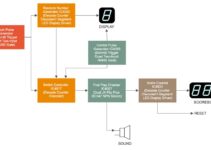In an era where digital threats loom large and business reliance on technology continues to skyrocket, a Management Information Systems (MIS) degree with a cybersecurity focus is more relevant than ever. This unique educational path stands at the intersection of business acumen, technical expertise, and security awareness. It equips students with a holistic understanding of how to protect and manage information systems within a business context. As cyber threats become more sophisticated, the demand for professionals skilled in both MIS and cybersecurity is rapidly growing. This article explores the multitude of benefits that an MIS – Cybersecurity degree offers, underscoring its importance in today’s tech-driven business landscape.
1. Interdisciplinary Knowledge
A Management Information Systems – Cybersecurity degree offers a blend of knowledge across several key domains: information technology, cybersecurity, and business management. This interdisciplinary approach ensures that students are not only proficient in technical aspects of cybersecurity but also understand the business implications of security decisions. Graduates emerge with a comprehensive skill set that enables them to design, implement, and manage secure information systems that align with business strategies and objectives.
2. High Demand in the Job Market
The job market for professionals with expertise in MIS and cybersecurity is robust and growing. The unique combination of skills gained from this degree opens doors to a variety of roles, from cybersecurity analysts and IT managers to consultants specializing in information systems security. Given the universal need for cybersecurity across industries – from healthcare to finance, and government to retail – graduates find themselves in high demand, with diverse career opportunities.
3. Flexibility and Accessibility

Source: intellectualpoint.com
The evolution of online education has significantly increased the accessibility of specialized degrees like MIS – Cybersecurity. Pursuing an online MIS degree offers the flexibility needed by many working professionals who are looking to advance their careers without pausing their job responsibilities. These programs provide an opportunity for students to gain advanced knowledge and skills while maintaining their current professional and personal commitments.
4. Enhanced Technical Skills
A core benefit of a Management Information Systems degree is the development of advanced technical skills. Students delve into critical areas such as network security, ethical hacking, data encryption, and vulnerability assessment. This technical training is vital for effectively securing and managing an organization’s information systems against an array of cyber threats and vulnerabilities.
5. Strategic Business Understanding
Beyond technical proficiency, this degree fosters a deep understanding of business operations and strategy. It trains students to view cybersecurity not just as a technical issue but as an integral part of a company’s overall strategy. This perspective is crucial for aligning security measures with business goals and ensuring that cybersecurity efforts bolster, rather than hinder, business performance.
6. Advanced Problem-Solving Abilities
Cybersecurity is often about solving complex, multifaceted problems. The degree hones advanced problem-solving skills, enabling graduates to identify, analyze, and address various cybersecurity challenges. This capability is essential for developing innovative solutions that protect against cyber threats while supporting the organization’s broader objectives.
7. Improved Communication Skills

Source: online.sbu.edu
The ability to communicate complex technical issues in simple terms is invaluable. This degree emphasizes the development of strong communication skills, both verbal and written. Graduates learn to effectively convey cybersecurity risks and strategies to non-technical stakeholders, ensuring that security measures are understood and supported throughout the organization. This skill is essential for bridging the gap between technical teams and business leadership, facilitating informed decision-making and collaborative efforts.
8. Leadership and Management Training
A key aspect of the MIS – Cybersecurity degree is its focus on leadership and management skills. Students are trained in leading teams, managing complex projects, and making strategic decisions under pressure. This training prepares graduates for higher-level roles where they can influence organizational strategies and lead cybersecurity initiatives. The degree equips them not just to be participants in the field, but to be leaders who shape the future of cybersecurity within organizations.
9. Networking Opportunities
Networking is a critical component of professional growth, especially in a field as dynamic as cybersecurity. An MIS – Cybersecurity degree program often provides ample opportunities for networking through internships, alumni events, and industry conferences. These connections can lead to job opportunities, mentorships, and collaborations, providing a platform for students to engage with experts and leaders in the field. Building a strong professional network can significantly enhance a graduate’s career trajectory.
10. Understanding of Legal and Ethical Issues
The curriculum of an MIS – Cybersecurity degree typically covers the legal and ethical aspects of cybersecurity. Students learn about data privacy laws, regulatory compliance, and ethical hacking. This knowledge is essential in today’s world, where cybersecurity professionals must navigate a complex legal landscape and make decisions that are not only effective but also ethically sound and compliant with regulations.
11. Preparation for Industry Certifications

Source: coventry.ac.uk
An MIS – Cybersecurity degree often prepares students for various industry certifications, such as Certified Information Systems Security Professional (CISSP). These certifications are highly regarded in the cybersecurity field and can enhance a graduate’s credentials and marketability. The degree program provides the foundational knowledge needed to pursue these certifications, further solidifying the graduate’s expertise in cybersecurity.
12. Adaptability to Technological Changes
The field of cybersecurity is continuously evolving, with new threats and technologies emerging regularly. A degree like this equips students with the ability to adapt to these changes. The curriculum is designed to be forward-looking, incorporating the latest trends and innovations in cybersecurity. This adaptability is a critical advantage, enabling graduates to stay ahead in the field.
A More Secure Future
In conclusion, a Management Information Systems – Cybersecurity degree offers a comprehensive array of benefits, setting the stage for a flourishing and impactful career in an increasingly vital field. It combines technical expertise with strategic business understanding, enhanced communication skills, and leadership training. For those aspiring to a career in cybersecurity, this degree is a gateway to becoming an influential part of the business world, safeguarding information and systems against digital threats.



